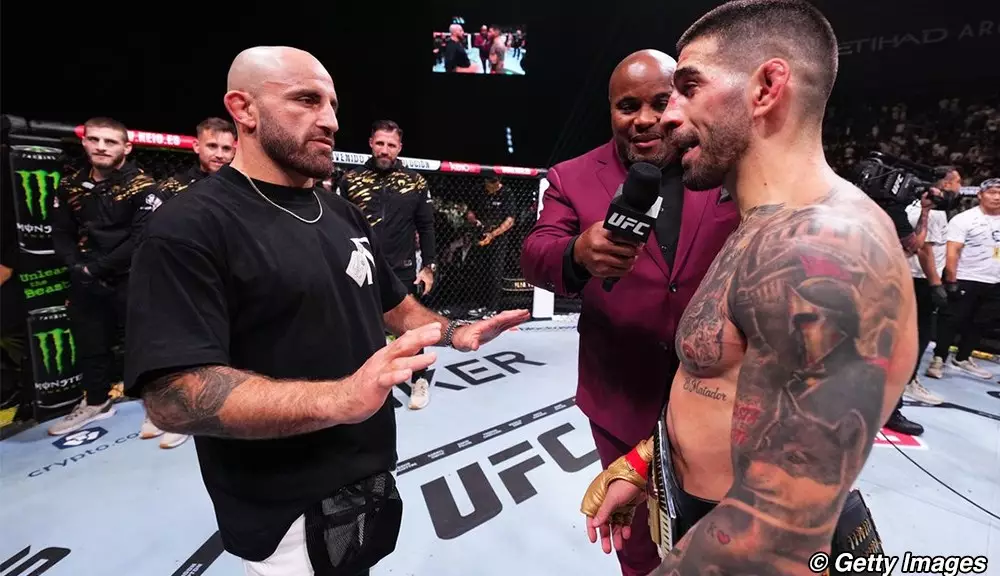As the world of mixed martial arts continues to evolve, the discussions surrounding championship opportunities and fights tend to provoke heated debates among fans and analysts alike. Recently, Alexander Volkanovski’s coach, Joe Lopez, expressed strong opinions on the chance of rising star Ilia Topuria vying for a second title. With Topuria’s impressive record of 16 wins and no losses, including significant victories over both Volkanovski and Max Holloway, many might assume he is ready to challenge for another belt. However, Lopez argues that Topuria has not yet earned this right and emphasizes a more traditional path to title contention.
According to Lopez, the journey toward being eligible for a second championship involves a rigorous process, which includes multiple title defenses in one’s main division. He believes that achieving five or six successful defenses should be a prerequisite before eyeing another belt. This perspective resonates with a broader advocacy for maintaining the integrity of divisions, allowing champions to clear out their respective classes before moving up or down. The emphasis on orderly succession in title challenges speaks to a long-standing code among fighters and fans—that to be considered for dual championship status, one must first demonstrate dominance in their existing weight class.
Volkanovski himself has faced the daunting challenge of seeking dual championship status after his close fight with Islam Makhachev at UFC 284. Despite falling short in that bout, his subsequent victory over Yair Rodriguez added another feather to his cap, proving his continued prowess in the featherweight category. Now, he is positioning himself for a rematch with Topuria while also being open to competing against Diego Lopes for an interim title, should his aspirations be delayed. This level of determination reflects an athlete who understands the importance of first solidifying his legacy before confronting the champions of other weight classes.
While Lopez acknowledges Topuria’s confidence—evident in his claim of submitting Makhachev—he views it as a double-edged sword. Confidence can be a powerful tool for any athlete, propelling them to heights they never thought possible. However, it can also lead to overestimation of one’s abilities against proven fighters. Makhachev, as Lopez notes, boasts a diverse set of skills in striking and grappling, which makes any potential matchup significantly challenging for Topuria despite his unbeaten record. The speculation of Topuria being the first to submit such a seasoned fighter adds to the narrative but must be viewed within the context of experience and strategic prowess.
The discussions surrounding title shots in MMA highlight the complex interplay between talent, timing, and established protocols within the sport. Lopez’s thoughts on the matter reflect a deep understanding of the sport’s dynamics and serve as a reminder that true championship status is earned through perseverance and consistent performance. Whether Topuria can indeed make the leap to challenge for a second belt remains to be seen; however, as the competitive landscape continues to shift, clarity and rationale must govern the path to championship glory in the world of UFC.

